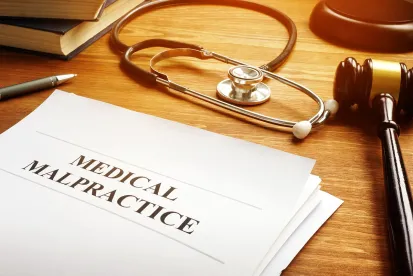On August 25, 2022, the Pennsylvania Supreme Court approved changes to the state’s medical malpractice rules. These amendments end a 20-year policy that had limited the filing of medical malpractice lawsuits to the jurisdiction in which they occurred.
Effective January 1, 2023, the court’s order allows plaintiffs in medical malpractice cases to sue providers in jurisdictions where they regularly conduct business—rather than restricting them to suing in counties where they received the problematic care and treatment at issue.
The updated policy will be reexamined after two years.
What is medical malpractice?
Simply put, medical malpractice is an act of negligence or carelessness on the part of a healthcare professional—a doctor, nurse, hospital, HMO, PPO, chiropractor, therapist, or other licensed medical care providers.
For example:
-
Misdiagnosis or failure to diagnose an illness
-
Injuries suffered during childbirth
-
incorrect treatment
-
Misuse of prescription medications
Under the law, harm caused to a patient due to medical malpractice is unacceptable, and an experienced lawyer can provide victims with the necessary information to decide how or whether to proceed with taking legal action.
Arguments in support of the rule change request
The rule changes have been controversial since their initial proposal in 2018. Some suggested, for example, that these changes will allow for the pursuit of frivolous lawsuits or result in windfalls for injured plaintiffs. Ultimately, these concerns were deemed baseless.
“Lost in rhetoric is the perspective of the victim of medical malpractice,” the committee wrote in its adoption report. “There appears to be a misconception that patients harmed by the negligent actions of healthcare providers somehow enjoy a windfall verdict in more populous counties. A majority of the committee did not find justification for the continued disparate treatment of victims of medical malpractice as it pertains to venue.”
There have been three primary arguments identified in support of the rule change request:
-
The court’s own data showed that medical malpractice filings had significantly decreased in the past 15 years.
-
Not only was there a significant decrease in the number of cases filed, but also in the number of claim payments—resulting in less compensation for victims of medical malpractice.
-
The current venue rule provides special treatment for a particular class of defendants, with the soon-to-be-implemented changes providing fairness of process.
Disappointment regarding the rule change
Despite the court’s ruling, there are still several opposed to the coming changes. For example, some worry that the new ruling will result in high insurance premiums and discourage medical professionals from practicing in Pennsylvania—issues that led to the implementation of the original rule back in the early 2000s.
“We run the risk of history repeating itself,” said Curt Shroder, executive director of the Pennsylvania Coalition for Civil Justice Reform. “Certainly the medical liability venue rules that have been in place for 20 years have served their purpose. Now that they’re rescinded, we don’t believe anything good can come out of this.”
Despite this, there are other benefits for victims, including allowing the selection of a venue that ensures fairness of the case.
What this might mean for your medical malpractice case
Some propose this rule change will lead to “venue-shopping,” or intentionally filing lawsuits in jurisdictions that tend to award larger payouts. Pennsylvania trial lawyers, however, have argued that for the past two decades, only allowing lawsuits to be filed in the county in which the medical malpractice occurred has been unfair to plaintiffs.
Victims of medical malpractice will soon be offered the flexibility to file their medical malpractice cases in any part of the state, regardless of where the incident occurred. Are you a victim of medical malpractice? Our lawyers can help
If you have been the victim of medical malpractice, you may be entitled to compensation for the physical, emotional, and financial damages you have suffered—regardless of where it happened.



 />i
/>i
